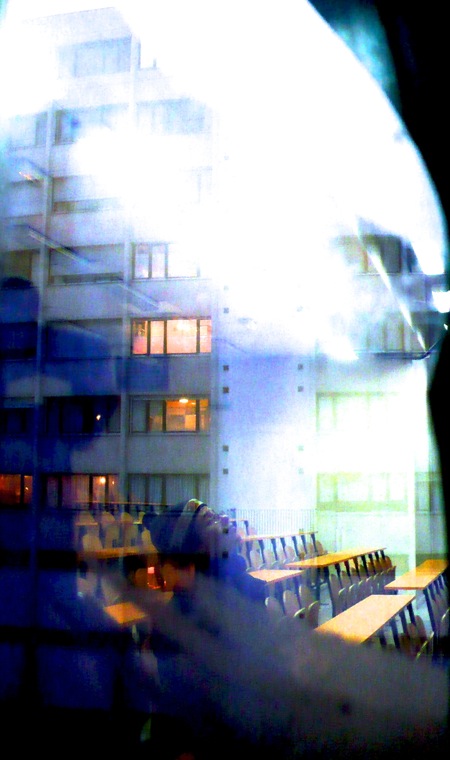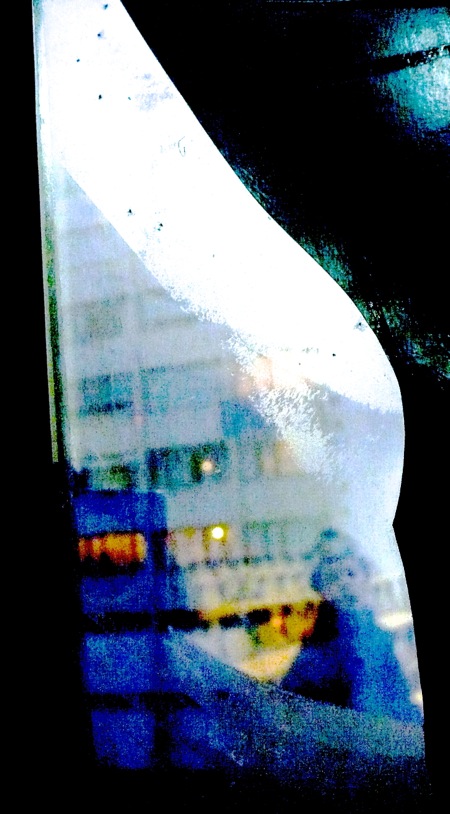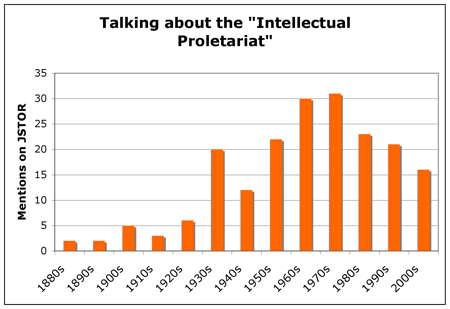The following is the text of an open letter sent to the President of the University of Paris-8 by a teacher in visual arts. She’s losing her job because of a particularly Kafkaesque circumstance: she doesn’t make enough money from art to maintain her tax status as an artist, and in France there’s a regulation that says you have to have a “principal occupation” to work as an adjunct. At any rate, this text, which tends to express its outrage through repetition and irony, is a particularly rich example of the emotional consequences of precarity.
Paris
April 28, 2011
Mr. President,
The honor I feel in writing to you is coupled to the hope that you will be able to spare a few moments.
In terms of the facts, all resemblance to the life of Christine Coënon is not accidental; in the form of the writing, all resemblance to John Cage’s Communication (Silence, Denoël Press, 2004) is not accidental (in italics).
I am a visual artist, an adjunct [chargé de cours] in Visual Arts [Arts Plastiques] at the University of Paris-8 since 1995.
I am 48 years old. High school diploma in 1980, two years of college (Caen, 1980-82), five years in art school (Caen, 1982-87) and then the Institute of Higher Studies in Visual Arts (Paris, 1988-98).
Holding a degree in art (DNSEP, 1987), more than twenty years of research and artistic production, fifteen years of teaching at the University of Paris-8… my pay as an adjunct in visual arts is rising to 358€ per month.
EVERY DAY IS BEAUTIFUL.
What if I ask 32 questions?
Will that make things clear?
Every week I teach two classes, a practical and a theoretical class, which comes to 128 hours of teaching per year.
All my classes are paid at the “discussion section adjunct rate [chargé de TD].”
Do you think my pay is fair, compared to the pay of a tenured professor whose hourly quota is less at 200 hours?
The adjunct is paid for the time spent in class: two and a half hours, although the time slots are currently three hours long. Should I refuse to answer questions after class? And course preparation? And correcting people’s work? And grading? And tutoring the seniors?
What is the difference between an adjunct and a baby-sitter?
In 2005, the semesters were changed from 15 weeks to 13 weeks; after which adjuncts were paid for 32 hours instead of 37.5.
32 = 13 x 2.5?
Why didn’t someone teach me to count?
Would I have to know how to count to ask questions?
Why, when a visiting lecturer [vacataire] gets a gross hourly wage of 61.35€, am I getting 40.91€ (compare to the rate of a visiting foreign lecturer)?
I was told that the hourly rate of 61.35€ corresponded to what an adjunct costs the university.
So if I just add the bosses’ overhead to my own salary, everything adds up.
Do I understand that adjuncts are supposed to be paying the bosses’ overhead?
These things that are not clear to me, are they clear to you?
Do you think it’s fair, this special system?
Why don’t adjuncts, who agree to work for a trimester or a year, get contracts?
They do, however, sign an agreement to work, and after that it’s a “maybe.”
If I start a semester, am I just supposed to imagine that I’ll be there at the end? The same thing for a year?
The adjunct is paid hourly, and thus doesn’t have the right to paid vacation or to an end-of-contract bonus. [NB: The French have something called an indemnité de précarité, which is supposed to be paid at the end of short-term contracts to “compensate for the precarity of the situation.”]
Is there any point in asking why?
Why is it that an artist must have money to make money?
Why does the university refuse the House of Artists’ regulatory framework? I pay them fees as a good taxpayer. [NB: The House of Artists is the professional association chosen by the French state to handle artists’ social security.]
Why does Visual Arts at the University misrecognize the artist’s situation, characterized by precarity?
(The median earnings of affiliated artists are 8300 euros per year, which is below the poverty line, and 50% of artists earn less than that…)
Is an artist who has “insufficient earnings” insufficient?
Why do I have the feeling of only being a chit for the accountants?
Why is the teaching artist considered “lucky” to get underpaid for teaching only if her research is profitable?
Why, paradoxically, does the University only recognize artists’ sales, and under no circumstances their research and teaching?
(I’ll permit myself to mention that in 2008 I got a research fellowship from the National Center of Visual Arts [CNAP]).
Is this the 28th question?
Have we got a way to make money?
Money, what does it communicate?
Which is more communicative, an artist who makes money or an artist who doesn’t?
Are people artists within the market, non-artists outside the market?
And if people on the inside don’t really understand, does that change the question?
Why do I teach at the University? (Some say there are Art Schools for artists!)
Why? Because I was invited there and, naturally, I found myself a place there.
I say “naturally” because, whether at an Art School or at the Institute for Higher Studies in Visual Arts, I have always felt a complementarity between the historian and/or theorist and the artist.
Too naturally, no doubt, I got invested and, too passionately, I have continued in the conditions that you know.
Is there always something to wonder about, never peace or calm?
If my head is full of uncertainty, what’s happening to my peace and to my calm?
Are these questions getting us somewhere?
And if there are rules, who made them, I ask you?
In other words — is there a possible end to these uncertainties and, if so, where does it begin?
Are there any important questions?
The semesters are getting shorter, the quota of students per class is rising…
60% of teachers in visual arts are precarious, their pay rising a few hundredths of a euro each year.
I ask you, given that experience emerges over time, what will happen if experience is sacrificed for momentary profit?
Are these questions getting us somewhere?
Where are we going?
Mr. President, I hope that you will be able to understand these questions, and able to answer them too.
I inform you that in spite of the recognized interest in my classes, they are going to be canceled because I am subject to the House of Artists system (which is not even a professional obligation for me), and my earnings are below the threshold for being a full member.
“Fired for insufficient earnings”: my courses are being canceled because my earnings are too low.
Faced with the aberration of this situation, and without a response on your part, I will choose to make this letter public on May 19, 2011.
Please accept, Mr. President, this assurance of my best regards,






